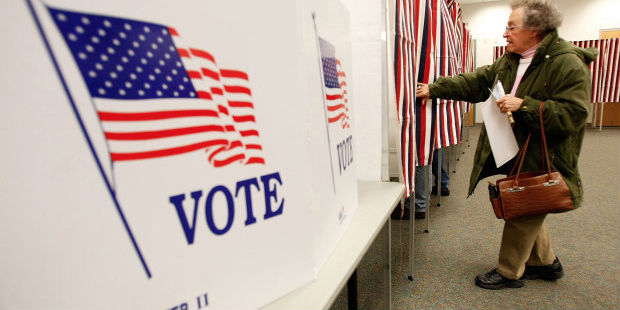If Democrats take a real beating at the polls on November 4, they will have to blame something, and a likely culprit will be the growing number of state voter ID laws.
Videos By Rare
Recent polls have begun breaking in Republicans’ favor in most of the closely contested races. If that trend continues—always a big “if”—and Republicans take control of the U.S. Senate, expand their grip on the House, and see gains in governors’ mansions and state houses, Democrats won’t blame President Obama’s failed economic policies, disregard for the U.S. Constitution, or Obamacare—at least not publicly.
If voter turnout is low, as is widely expected—and typical for off-year elections—Democrats will likely accuse Republicans of suppressing voter turnout by pushing voter ID laws.
Critics will point out that most of the closely contested states have stricter ID laws. According to the National Conference of State legislatures (NCSL):
- Seven states (KS, IN, VA, TN, AR, MS, GA) require a photo ID to vote. In this group, Kansas, Arkansas and Georgia have closely contested Senate races.
- Eight states (ID, SD, MI, LA, AL, FL, RI, HI) request photo IDs, but people will still be allowed to vote without one if certain conditions are met. Of these states, the Louisiana Senate race very close.
- And 13 states (AK, WA, MT, UT, CO, TX, OK, MO, KY, SC, DE, NH, CT) request ID but don’t require it to include a photo. Of those, Alaska, Colorado, Kentucky and possibly New Hampshire are all in the balance. (Update: the Supreme Court will allow the Texas voter ID law to stand for now, which puts it in with the first, more restrictive categories.)
Thus of the 10 or so closest Senate races, eight are in states with voter ID laws. Neither Iowa nor North Carolina, which also have very close Senate races, require an ID, according to NCSL.
However, there are good reasons why voter ID laws would not explain a Republican sweep in most of those states.
First, most of the polls show that almost all of the “intensity” for the upcoming election is on the Republican side. As NBC recently found from its own polling, “54 percent of Republicans say they’re highly interested in the upcoming elections, compared to 44 percent of Democrats who say the same.”
The president recently acknowledged his policies were on the ballot, and there are millions of voters who can’t wait to get to the polls to vote against them. Those eager voters happen to be disproportionately located in red-leaning states where control of the Senate will likely be determined.
A second reason to be skeptical of a voter-suppression excuse: There is little evidence that voter ID laws have discouraged turnout. For example, both Indiana and Georgia have the stricter law requiring a photo ID, and minority participation increased after the laws passed.
And when the Wall Street Journal’s Jason Riley pointed out last July, using U.S. Census Bureau data, that “Black voter turnout in 2012 exceeded the rate of white voter turnout, even in the states with the strictest voter ID laws,” Politifact concluded the statement was true.
It’s true that a new Government Accountability Office (GAO) study is more nuanced. It reviewed 10 voter ID studies and found split results, “Five of these 10 studies found that ID requirements had no statistically significant effect on turnout; in contrast 4 studies found decreases in turnout and 1 found an increase in turnout that were statistically significant.”
The GAO also did its own analysis of two states, Kansas and Tennessee, and concluded that voter ID laws did have a small impact by reducing voter turnout. However, both states disagreed with the finds, saying that the study was flawed and even used the wrong data.
If Democrats lose big, expect them to latch onto that GAO study. They won’t say that America rejected their big-government policies. Rather, they are likely to say that Americans would have voted for those policies—if only Republicans hadn’t suppressed the vote.

